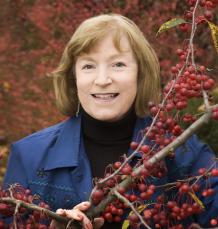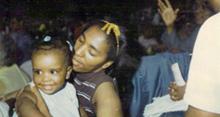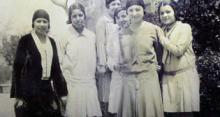The Great Dance

FREIGHT TRAIN
Swollen like a melon in July,
lumbersome as a moose,
I've boarded that train
and I can't get off,
no return trip.
Some babies are sweet
and pink as peaches;
others are wrinkled,
and scream like herons;
dispositions not optional,
all sales final.
Yet I know
that first cry
will bond me like glue,
and those wandering, wondering
dark eyes will fix my heart
faster than any lover.
first published in McCall’s
all your life, menarche to menopause,
pregnancy to blank black sky, the dark
night when there is no light, anywhere.
Sometimes, I see my grandmother’s face
when it’s round and full, the crevasses
and craters that mark the surface.
Sometimes, when it goes gibbous,
I see my mother, as her light fades
and dims. Waxing or waning,
I think of my daughters, the oldest
just joining the circle of women
with the birth of her first, the youngest
still finding her rhythm in the great
dance. But what calls me most often
in the still night sky are the crescents,
slim fingernail parings, tiny commas
of light, perhaps undreamed granddaughters,
or some other future, but always that beacon,
that shine in the sky that will bloom
into a lamp, throw light on everything
that dances under its glimmer.
first published in Triplopia
down, straight from Canada.
The small pearl I’d seen floating
in the warm water of her breast
was cancer, a word that hissed
in the ear like fat in a pan
or the breath of a snake.
With these two syllables, the dice
rolled, and the odds went up
for all the women in my family.
Early November, most of October’s
gold has fallen, bruise-colored clouds
moving in. I remember being six,
sick in bed, how the winter trees
scratched the leaden sky, witches in a Grimm
tale, how she brought me cinnamon
toast and milky tea. Now I bring her lentil
soup, with circles of kielbasa, carrots, onions;
scones warm from the oven, spread with strawberry
jam, whatever bit of sweetness I can scrape
from the jar. Mother, daughter, all the old stories,
the frost moon, the loss moon, sinking below the horizon.
first published in Dogwood
Barbara Crooker's poems have appeared in magazines such as The Green Mountains Review, Poet Lore, The Potomac Review, The Hollins Critic, The Christian Science Monitor, Smartish Pace, The Beloit Poetry Journal, Nimrod, The Denver Quarterly, The Tampa Review, Poetry International, The Christian Century, America, and anthologies such as The Bedford Introduction to Literature, Good Poems for Hard Times (Garrison Keillor, editor), and Common Wealth: Contemporary Poets on Pennsylvania. She is the recipient of the 2007 Pen and Brush Poetry Prize, the 2006 Ekphrastic Poetry Award from Rosebud, the 2004 WB Yeats Society of New York Award, the 2004 Pennsylvania Center for the Book Poetry in Public Places Poster Competition, the 2003 Thomas Merton Poetry of the Sacred Award, the 2003 "April Is the Cruelest Month" Award from Poets & Writers, the 2000 New Millenium Writing's Y2K competition, the 1997 Karamu Poetry Award, and others, including three Pennsylvania Council on the Arts Creative Writing Fellowships, and fourteen residencies at the Virginia Center for the Creative Arts. A twenty-eight time nominee for the Pushcart Prize and five time nominee for Best of the Net, she was nominated for the 1997 Grammy Awards for her part in the audio version of the popular anthology, Grow Old Along With Me-The Best is Yet to Be (Papier Mache Press). Her books are Radiance, which won the 2005 Word Press First Book competition and was a finalist for the 2006 Paterson Poetry Prize; Line Dance (Word Press 2008), which won the 2009 Paterson Award for Literary Excellence; and More (C&R Press 2010). Her poetry has been read on the BBC, the ABC (Australian Broadcasting Company), and by Garrison Keillor on The Writer's Almanac. Recently, she read in the Poetry at Noon series at the Library of Congress. Learn more about Barbara and her work at www.barbaracrooker.com .
Related Content
|
Sierra Leonian writer Aminatta Forna tells the story of a girl with a charismatic mother who was the favorite wife of her father, but also the target of judgments and criticisms from others in their community. |
Tracei Willis’ poem offers a vivid glimpse of growing up in the American South and pays tribute to the women in her life. |
Musician and Producer Mutamassik dedicates a song to her grandmother, who was forced to give up her dream of becoming a doctor. |
Paula Obè's song/poem celebrates her mother and grandmother as well as our women ancestors who paved the path for women's equality.
|



